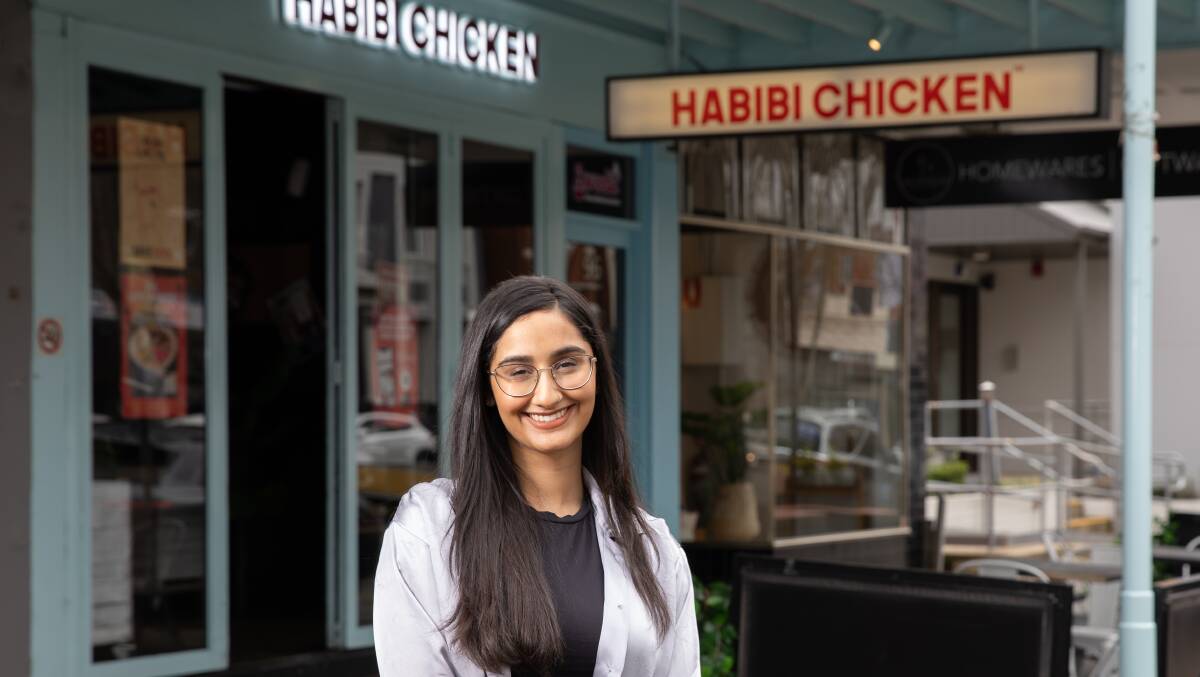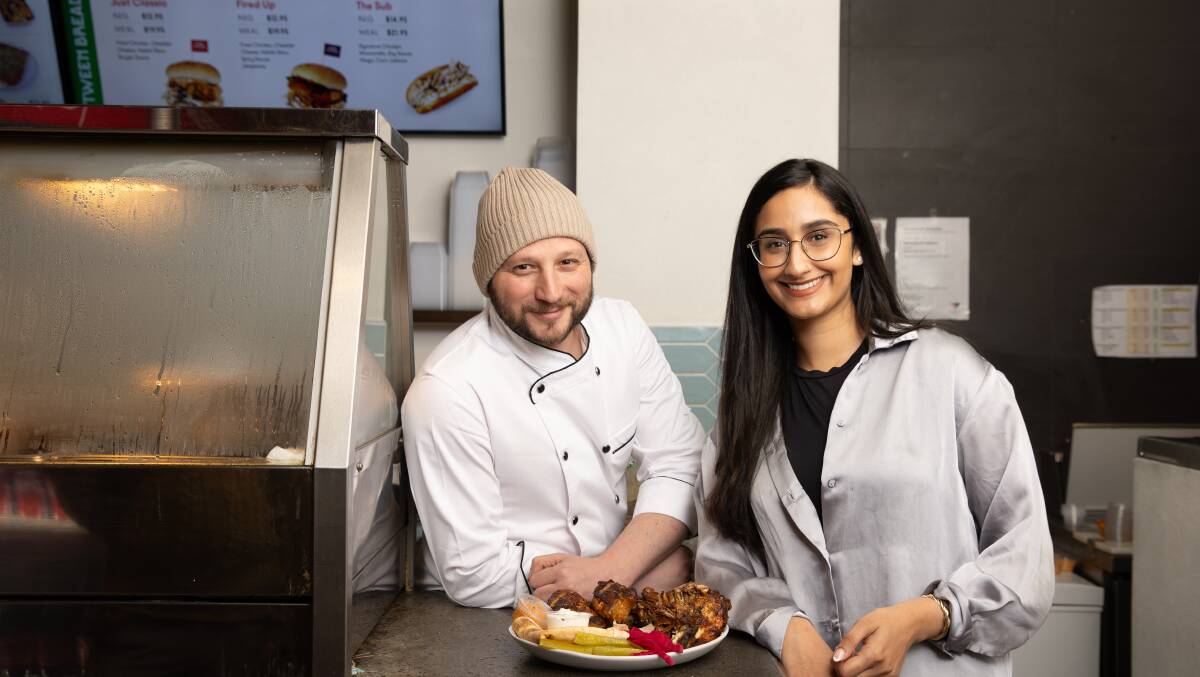About 620,000 Australian small businesses are just like Mariam Rehman's - owned by migrants and first generation Australians.
Resilience, determination and education are among the reasons for their success.
But despite having started three businesses by the age of 24, this first generation Australian hates being called an entrepreneur.
"The actual meaning of entrepreneur is creating something, having a vision, and having the tenacity to stick by it, even when things are not going great," Ms Rehman said.

The overnight success of her current labour of love, Habibi Chicken - which calls itself "the best charcoal chicken in Wagga Wagga" - was not happenstance.
Attracting customers, finding skilled workers, language barriers and cultural challenges can stand the way of migrant business owners, according to the CGU Migrant Small Business Report published in 2018.
Trial and error
But Ms Rehman had practise. She started her first business at 16, taking photos for "20 or 50 bucks". She never thought about it seriously.
She later began a university degree in accounting and finance, but dropped out because it was "really boring".
This led to a tough conversation with her parents on a family holiday in 2018, and ultimately her journey into brand consulting.
She named her first business Monale after the restaurant in Pakistan where they had the discussion.
"I started my own digital marketing agency," she said.
"I saw that businesses had an expectation to instantly get results when they didn't have any story, or any unique point of difference - that's when I decided to go into brand consulting."
Using her self-described "weird brain" she landed on a unique strategy which set up Habibi Chicken for success.
Regional migrants work even harder
When it opened in 2022 the staff were nearly overwhelmed with customers. In their first weekend, they sold more than 400 chooks.
Ms Rehman and the store's manager, Mo El-Halwani, credit this to the fact Middle Eastern food was a novelty in Wagga in the heart of the NSW Riverina region. They saw a gap that needed to be filled.

Wagga Multicultural Council community development officer Tom Paton said the novelty factor of culturally-specific businesses is an advantage for culturally and linguistically diverse (CALD) communities.
"People just approach it in a different way," he said. "There's definitely that do-it-yourself kind of attitude.
"There's a community mindedness as well ... I think especially in regional areas, that's one way to grow your networks as well."
He said many new migrants faced unique challenges too, such as navigating Australia's planning laws and discrimination limiting access to capital and social networks.
"I think this is a universal experience but exacerbated when you're trying to navigate that in your second, third or fourth language," Mr Paton said.
Additional assistance for migrant-run start-ups could be useful.
"Potentially, access to language support through those processes would be good," he said.
"A lot of those programs you only have certain limited visits. You might only get four sessions in a year, and for a lot of the clients I see, it'll take a lot longer than four quick sessions."
No city 'pedigree' and capital
Adam Drummond, the president of Committee 4 Wagga, a member-based advocacy group for businesses in the expanding region, said these challenges were compounded by living regionally.
He coordinates a young leaders program in Wagga which helps develop skills and resilience among participants to prepare them for life in business, social enterprise and politics.
A lack of safety nets discouraged young people from taking risks on business ideas in regional Australia.
Large cities boasted access to vast pools of startup capital through incubator programs. Elsewhere, these opportunities were far more limited.
Instead of being cities to regions, why can't it be regions to the cities?
- Mariam Rehman, Habibi Chicken owner
"In regional NSW we're a bit isolated from those incubators and those tech startup hubs that are so prevalent in metropolitan areas," he said.
"I also think there's a lower risk appetite the more regional you go. Birds of a feather flock together so if you're not seeing your parents, friends or family taking risks and those risks paying off, you tend not to be a risk taker yourself.
"Pedigree is a big advantage in the world of investing too, so I think that puts regional people at a bit of a disadvantage."
Success at home
For Ms Rehman, small, tight-knit communities offer opportunities as well as challenges. News travels quickly by bush telegraph, and anything new is exciting.
When she was younger, she assumed in order to be successful she would have to leave the town she grew up in and loves.
Now she's not so sure.
Now that Habibi Chicken has begun stocking its warehouse to supply future franchisees and is considering expanding internationally, Ms Rehman has no intention of leaving Wagga.
"When you translate it from Arabic, 'habibi' means 'my love'. We're very invested in that vision ... we want to make sure everyone who comes here genuinely feels loved," Ms Rehman said.
"We brought our own personal story and vision of wanting to create [an] impact from Wagga, from the regions, then out to the metropolitan - and, honestly, we have plans to go international.
"Instead of being cities to regions, why can't it be regions to the cities? That's the plan."
My story

There are as many versions of business success as there are people in business.
Not all entrepreneurs are Elon Musk. Some just want to build an independent life for themselves and their families.
The information economy has made it nearly as possible to run a successful business from the country as anywhere else - if you can get your idea off the ground.


